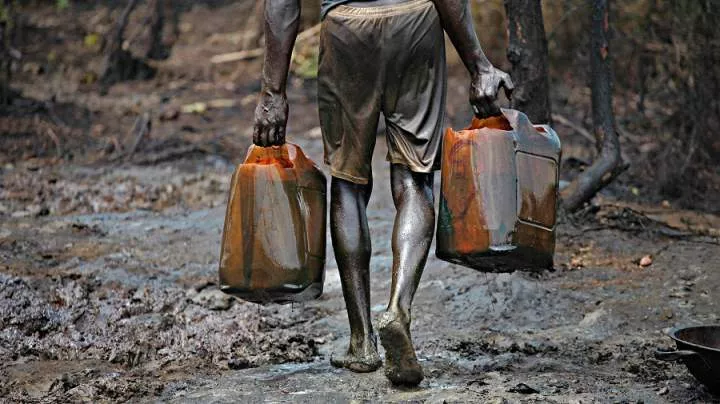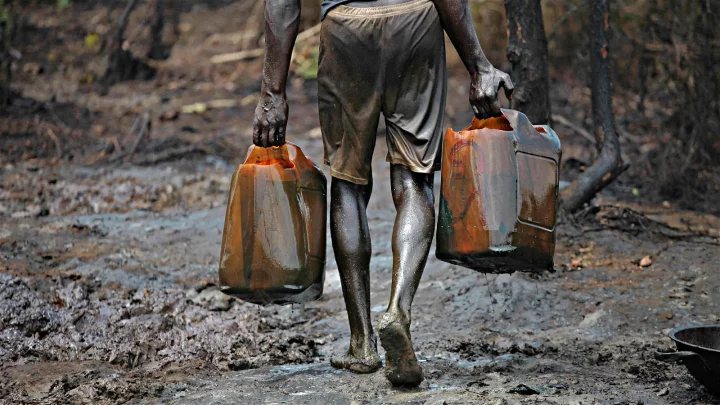
The Nigerian National Petroleum Company Limited (NNPCL) has said that the country recorded 40 incidents of crude oil theft between July 15 and July 21, 2023.
The company stated this on Tuesday via its official Twitter account.
According to the NNPCL, the war against crude oil theft is still raging across the Niger Delta region, specifically highlighting Rivers, Bayelsa, and Delta states, the company said that 93 illegal connections were found, and disconnections as well as repairs are ongoing.
The company also said that 69 illegal refineries were discovered and destroyed within the highlighted period.
Also, 27 cases of pipeline vandalism were discovered and are being fixed.
The collaboration between the NNPCL and security agencies also made it possible to arrest 30 wooden boats and trucks involved in transporting stolen crude, which were confiscated in the last week.
The report also identified 13 vessel AIS infractions, 5 oil spills, 2 illegal vessels and 1 document validation. 13 of the incidences were recorded in the Deep Blue Water, 41 were recorded in the Western region of the Niger Delta, 169 were recorded in the Central region and 17 occurred in the Eastern part of the oil-producing part of the Niger Delta region.
However, the company did not mention anything about the suspects found to be carrying out illegal activities using vessels, boats and other materials that were either destroyed or confiscated by the security agencies and the NNPCL.
Opinions on vessel burning
Earlier this month, some climate activists said the decision by the NNPCL and related parties to burn down vessels caught stealing crude oil has adverse effects on the environment and should be avoided.
Olumide Idowu, the executive director of the International Climate Change Development Initiative (ICCDI), said burning activities are jeopardizing the source of drinking water and agricultural irrigation.
According to him, the contamination can affect the country's aquatic ecosystem and disrupt the balance of plants and animals.
Meanwhile, Financial Analyst, Kalu Aja, earlier this month, said destroying the vessels/ships used in illegal crude trade was the best option.
According to Aja, the Nigerian oil-lifting enterprise is an open-air crime scene, the security force is compromised to the hilt and the country is losing billions to a few well-connected crooks. He wrote on Twitter:
"Bunkering has a weakness, the stolen oil must be trans-loaded to ships, once you eliminate the ships, then bunkering cannot happen to the extent it is happening today. Sinking ships used by pirates have been the norm of governments since the earth was created across the world.
"Sinking an oil ship will damage the environment but the bunkering is already damaging the environment when they break oil pipes. My solution is not perfect or elegant, but no one has argued it won't work, because it will work.
"If you eliminate the ships that take stolen crude to the large ocean-going vessels offshore, you stop the bunkering. Other measures?
"Start issuing end-user licenses for Nigerian crude, then sue the refineries abroad that refine Nigerian crude without that license and target their insurance. Trust me, they don't need negative exposure or hassle.
"What we can't do is sit down and post "arrest them" as if we live in Norway. You and I know that arrests won't stop this, but sinking the ships will."
















Comments